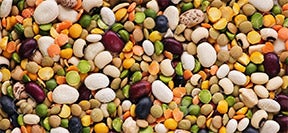CSU Clinic/Health and Wellness
Mailing Address
CSU Clinic
2112 Euclid Avenue
Center for Innovations in Medical Professions (CIMP), room 205
Cleveland, OH 44115-2214
Campus Location
Center for Innovations in Medical Professions
2112 Euclid Avenue
Room 205
Phone: 440.592.1900
Health related questions:
CSUHealthCenter@metrohealth.org
Insurance questions:
StudentBelonging@csuohio.edu
Need help now? 988 lifeline is here.
Call or text 988 or chat.988lifeline.org 24/7
Folic Acid
Folic acid is used to make the extra blood your body needs during pregnancy. All women of childbearing age should consume 400 micrograms of folic acid a day.
When should I start taking folic acid?
You should start taking folic acid prior to getting pregnant even if you are not trying to conceive. Neural tube defects usually develop in the first 28 days of pregnancy, often before a woman even knows that she is pregnant. If you find you are pregnant and have not been taking folic acid, you should start now to help prevent any neural defects in the first three months of pregnancy
What are the risks of not taking folic acid?
The absence of folic acid increases the possibility of a neural tube defect, a defect in the development of the spinal cord.
- Spina bifida is a condition in which the spinal cord is exposed. If the vertebrae (bones of the spinal column) surrounding the spinal cord do not close properly during the first 28 days after fertilization, the cord or spinal fluid bulge through, usually in the lower back.
- Anencephaly is the severe underdevelopment of the brain
What foods contain folic acid?
Approximately half of all pregnancies are unplanned, so the U.S. Food and Drug Administration has taken steps to fortify certain foods so that all women of childbearing age get a daily dose of folic acid. The following foods can help you obtain your recommended amount of folic acid:
- Leafy green vegetables, such as a large spinach salad
- Citrus fruits, such as orange juice
- Beans
- Breads
- Cereals
- Rice
- Pastas
A daily vitamin with folic acid may be suggested by your health care provider since the food listed above may not contain enough folic acid to meet the daily requirement.
How do I know if I am at risk for having a baby with neural defects, and how can I prevent this from happening?
Women who are at greatest risk are those that have had a previous pregnancy that involved a neural defect. Women who are not eating a balanced diet that includes folic acid are also at risk.
The best way to prevent neural defects is to take the recommended 400 micrograms of folic acid daily for one month before conception and during the first three months of pregnancy.
How are neural tube defects diagnosed?
Neural tube defects are detected through an alpha-fetoprotein test (AFP); AFP is a blood test administered at 16-18 weeks gestation. The test measures alpha-fetoprotein, a substance produced by the fetus and secreted into the amniotic fluid, which is also in the mother's blood. The level of AFP in mother's blood peaks at about 30-32 weeks. Abnormally high amounts of AFP may indicate that a baby has a neural tube defect.
What are other reasons for an elevated AFP?
An elevated AFP could mean the mother is carrying twins or that there is a problem with the placenta. Women with diabetes or liver disease may also have an elevated AFP level. However, an elevated AFP could mean that there are birth defects present such as severe kidney disease, liver disease, esophageal or intestinal blockage, Down Syndrome, urinary obstruction, or osteogenesis imperfecta (fragility of the baby's bones).
If I have an elevated AFP, what additional tests are available?
- A second AFP test
- An ultrasound
- Amniocentesis
Foods with folic acid in them include leafy green vegetables, fruits, dried beans, peas and nuts. Enriched breads, cereals and other grain products also contain folic acid. If you don't get enough folic acid from the foods you eat, you can also take it as a dietary supplement.
Get the Most Folic Acid from Your Food
 |
Eat five or more servings of fruits and vegetables every day. Eat fruits and vegetables raw. Add fresh vegetables such as spinach, broccoli or romaine lettuce to tossed salads. |
 |
Drink orange juice every day or several times a week. |
 |
Choose whole grain bread instead of white bread. |
 |
When you cook vegetables, steam them or cook them in a small amount of water. Do not overcook them! |
 |
Eat dried beans or peas several times a week. Serve them as a main dish instead of meat or add them to soups, salads and casseroles. |
 |
Choose cereals that have folic acid added to them. Eat them for breakfast and for snacks. |
Folic Acid Per 1/2 Cup
|
100 mcg or more asparagus |
40-90 mcg romaine lettuce |
|
10-30 mcg cantaloupe |
little or no folic acid apples or apple juice |
Remember, your best bet is to get folic acid from enriched foods and/or a daily vitamin supplement and to eat foods naturally rich in this very important B vitamin. It's never too early to get enough folic acid!

We are accredited by Accreditation Association for
Ambulatory Health Care (AAAHC)
Mailing Address
CSU Clinic
2112 Euclid Avenue
Center for Innovations in Medical Professions (CIMP), room 205
Cleveland, OH 44115-2214
Campus Location
Center for Innovations in Medical Professions
2112 Euclid Avenue
Room 205
Phone: 440.592.1900
Health related questions:
CSUHealthCenter@metrohealth.org
Insurance questions:
StudentBelonging@csuohio.edu
Need help now? 988 lifeline is here.
Call or text 988 or chat.988lifeline.org 24/7